The Great Dictator is a 1940 American political satire comedy-drama film written, directed, produced, scored by and starring British comedian Charlie Chaplin, following the tradition of many of his other films. Having been the only Hollywood filmmaker to continue to make silent films well into the period of sound films, this was Chaplin's first true sound film.
| The Great Dictator | |
|---|---|
Theatrical release poster | |
| Directed by | Charlie Chaplin |
| Produced by | Charlie Chaplin |
| Written by | Charlie Chaplin |
| Starring | Charlie Chaplin Paulette Goddard Jack Oakie Henry Daniell Reginald Gardiner Billy Gilbert Maurice Moscovich |
| Music by | Charlie Chaplin Meredith Willson |
| Cinematography | Karl Struss Roland Totheroh |
| Edited by | Willard Nico Harold Rice |
Production company | Charles Chaplin Film Corporation |
| Distributed by | United Artists |
Release date |
|
Running time | 124 minutes |
| Country | United States |
| Language | English |
| Budget | $2 million (US$35,186,603 in 2017 dollars) |
| Box office | $5 million (US$87,339,667 in 2017 dollars) |
Chaplin's film advanced a stirring, controversial condemnation of Adolf Hitler, Benito Mussolini, fascism, antisemitism, and the Nazis. At the time of its first release, the United States was still formally at peace with Nazi Germany. Chaplin plays both leading roles: a ruthless fascist dictator and a persecuted Jewish barber.
The Great Dictator was popular with audiences, becoming Chaplin's most commercially successful film. Modern critics have also praised it as a historically significant film and an important work of satire, and in 1997, it was selected by the Library of Congress for preservation in the United States National Film Registry as being "culturally, historically or aesthetically significant". The Great Dictator was nominated for five Academy Awards – Outstanding Production, Best Actor, Best Writing (Original Screenplay), Best Supporting Actor for Jack Oakie, and Best Music (Original Score).
In his 1964 autobiography, Chaplin stated that he would not have made the film if he had known about the true extent of the horrors of the Nazi concentration camps at the time.
Screenplay
On the Western Front in 1918, a Jewish Private (Charlie Chaplin) fighting for the Central Powers nation of Tomainia valiantly saves the life of a wounded pilot, Commander Schultz (Reginald Gardiner), who carries valuable documents that could secure a Tomainian victory. However, their plane crashes mid-flight, and the Private subsequently suffers memory loss. Upon being rescued, Schultz is informed that Tomainia has officially surrendered to the Allied Forces, while the Private is carried off to a hospital.
Twenty years later, still suffering from amnesia, the Private leaves the hospital to return to his previous profession as a barber in the ghetto. The ghetto is now governed by Schultz, who has been promoted in the Tomainian regime under the ruthless dictator Adenoid Hynkel (also Chaplin).
The Barber falls in love with a neighbor, Hannah (Paulette Goddard), and together they try to resist persecution by military forces. The troops capture the Barber and are about to hang him, but Schultz recognizes him and restrains them.
Meanwhile, Hynkel tries to finance his ever-growing military forces by borrowing money from a Jewish banker called Hermann Epstein, but the banker refuses to lend him the money. Furious, Hynkel orders a purge of the Jews. Schultz protests this inhumane policy and is sent to a concentration camp. He escapes and hides in the ghetto with the Barber. Schultz tries to persuade the Jewish family to mount an assassination attempt against Hynkel, but they decline to participate. Troops search the ghetto, arrest Schultz and the Barber, and send both to a concentration camp. Hannah and her family flee to freedom in the neighboring country of Osterlich. Hynkel has a dispute with the dictator of the nation of Bacteria, a man named Napaloni (Jack Oakie), over which country should invade Osterlich. After signing a treaty with Napaloni, Hynkel invades Osterlich, with Hannah and her family being trapped by the invading force.
Escaping from the camp in stolen uniforms, Schultz and the Barber, dressed as Hynkel, arrive at the Osterlich frontier, where a huge victory-parade is waiting to be addressed by Hynkel. The real Hynkel is mistaken for the Barber while out duck hunting in civilian clothes and is knocked out and taken to the camp. Schultz tells the Barber to go to the platform and impersonate Hynkel, as the only way to save their lives once they reach Osterlich's capital. The Barber has never given a public speech in his life, but he has no other choice.
The terrified Barber mounts the steps but is inspired to seize the initiative. Announcing that he (as Hynkel) has had a change of heart, he makes an impassioned plea for brotherhood and goodwill.
You, the people, have the power to make this life free and beautiful, to make this life a wonderful adventure.
Then – in the name of democracy – let us use that power – let us all unite. Let us fight for a new world – a decent world that will give men a chance to work – that will give youth a future and old age a security. By the promise of these things, brutes have risen to power. But they lie! They do not fulfill that promise. They never will!
Dictators free themselves but they enslave the people! Now let us fight to fulfill that promise! Let us fight to free the world – to do away with national barriers – to do away with greed, with hate and intolerance. Let us fight for a world of reason, a world where science and progress will lead to all men’s happiness. Soldiers! in the name of democracy, let us all unite!
Finally, he addresses a message of hope to Hannah, in case she can hear him.
Look up, Hannah. The soul of man has been given wings, and at last he is beginning to fly. He is flying into the rainbow – into the light of hope, into the future, the glorious future that belongs to you, to me, and to all of us.
Hannah hears the Barber's voice on the radio. She turns her face, radiant with joy and hope, toward the sunlight, and says to her fellows, "Listen."
People of the ghetto
- Charlie Chaplin as a Jewish barber in the ghetto, the protagonist. The Barber was a soldier during World War I and loses his memory for about 20 years. After having rescued Schultz during the war, he meets his friend again under radically changed circumstances.
- Paulette Goddard as Hannah, the Barber's neighbour. She lives in the ghetto next to the barber shop. She supports the Barber against the Tomainian Storm troopers.
- Maurice Moscovich as Mr. Jaeckel, an elderly Jew who befriends Hannah. Mr. Jaeckel is the renter of the barber salon.
- Emma Dunn as Mrs. Jaeckel
- Bernard Gorcey as Mr. Mann
- Paul Weigel as Mr. Agar
- Chester Conklin as Barber's customer
People of the palace
- Charlie Chaplin as Adenoid Hynkel, the main antagonist. Hynkel is the Dictator of Tomainia (a parody of Germany and Adolf Hitler) and attacks the Jews with his storm troopers. He has Schultz arrested and has his storm troopers hunt down the Jewish Barber. Hynkel is later arrested by his own soldiers, who mistake him for the Jewish Barber.
- Jack Oakie as Benzino Napaloni, Dictator of Bacteria, a parody of Italian dictator Benito Mussolini.
- Reginald Gardiner as Commander Schultz, a Tomainian who fought in World War I, who commands soldiers in the 1930s. He has his troops abstain from attacking Jews, but is arrested by Hynkel, after which he becomes a loyal ally to the Barber. He later leads the invasion of Osterlich and helps the Barber to become Führer.
- Henry Daniell as Garbitsch, a parody of Joseph Goebbels, and Hynkel's loyal Secretary of the Interior and Minister of Propaganda.
- Billy Gilbert as Herring, a parody of Hermann Göring, and Hynkel's Minister of War. He supervises demonstrations of newly developed weapons, which tend to fail and annoy Hynkel.
- Grace Hayle as Madame Napaloni, the wife of Benzino who later dances with Hynkel.
- Carter De Haven as Bacterian ambassador
Other cast
- Stanley "Tiny" Sandford as a comrade soldier in 1918
- Joe Bordeaux as ghetto extra
- Hank Mann as storm trooper stealing fruit
Also featuring Chester Conklin, Esther Michelson, Florence Wright, Eddie Gribbon, Robert O. Davis, Eddie Dunn, Nita Pike and Peter Lynn.
According to Jürgen Trimborn's biography of Nazi propaganda filmmaker Leni Riefenstahl, both Chaplin and French filmmaker René Clair viewed Riefenstahl's Triumph of the Will together at a showing at the New York Museum of Modern Art. Filmmaker Luis Buñuel reports that Clair was horrified by the power of the film, crying out that this should never be shown or the West was lost. Chaplin, on the other hand, laughed uproariously at the film. He used it to inspire many elements of The Great Dictator, and by repeatedly viewing this film, Chaplin could closely mimic Hitler's mannerisms.
Trimborn suggests that Chaplin decided to proceed with making The Great Dictator after viewing Riefenstahl's film. Hynkel's rally speech near the beginning of the film, delivered in German-sounding gibberish, is a caricature of Hitler's oratory style, which Chaplin also studied carefully in newsreels.
The film was directed by Chaplin (with his half-brother Wheeler Dryden as assistant director), and written and produced by Chaplin. The film was shot largely at the Charlie Chaplin Studios and other locations around Los Angeles. The elaborate World War I scenes were filmed in Laurel Canyon. Chaplin and Meredith Willson composed the music. Filming began in September 1939 (coincidentally soon after Germany invaded Poland, triggering World War II) and finished six months later.
Chaplin wanted to address the escalating violence and repression of Jews by the Nazis throughout the late 1930s, the magnitude of which was conveyed to him personally by his European Jewish friends and fellow artists. The Third Reich's repressive nature and militarist tendencies were well-known at the time. Ernst Lubitsch's 1942 To Be or Not To Be dealt with similar themes, and also used a mistaken-identity Hitler figure. But Chaplin later said that he would not have made the film had he known of the true extent of the Nazis' crimes. After the horror of the Holocaust became known, filmmakers struggled for nearly 20 years to find the right angle and tone to satirize the era.
In the period when Hitler and his Nazi Party rose to prominence, Chaplin was becoming internationally popular. He was mobbed by fans on a 1931 trip to Berlin, which annoyed the Nazis. Resenting his style of comedy, they published a book titled The Jews Are Looking at You (1934), describing the comedian as "a disgusting Jewish acrobat" (although Chaplin was not Jewish). Ivor Montagu, a close friend of Chaplin, relates that he sent the comedian a copy of the book and always believed that Chaplin decided to retaliate with making Dictator.
In the 1930s cartoonists and comedians often built on Hitler and Chaplin having similar mustaches. Chaplin also capitalized on this resemblance in order to give his Little Tramp character a "reprieve".
In his memoir My Father, Charlie Chaplin, Chaplin's son Charlie Jr. described his father as being haunted by the similarities in background between him and Hitler; they were born four days apart in April 1889, and both had risen to their present heights from poverty. He wrote:
Their destinies were poles apart. One was to make millions weep, while the other was to set the whole world laughing. Dad could never think of Hitler without a shudder, half of horror, half of fascination. "Just think", he would say uneasily, "he's the madman, I’m the comic. But it could have been the other way around."
Chaplin prepared the story throughout 1938 and 1939, and began filming in September 1939, one week after the beginning of World War II. He finished filming almost six months later. The 2002 TV documentary on the making of the film, The Tramp and the Dictator, presented newly discovered footage of the film production (shot by Chaplin's elder half-brother Sydney) which showed Chaplin's initial attempts at the film's ending, filmed before the fall of
Watch movie The Great Dictator online on Amazon
Watch movie The Great Dictator online
Watch The Movie On PrimeMard Full HD Movie Download
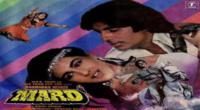
Pyaar Koi Khel Nahin Full HD Movie Download
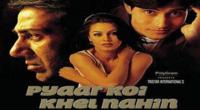
Hum Tum aur Woh Full HD Movie Download
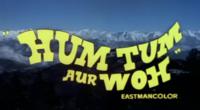
Abhimaan (1973) Full HD Movie Download
.jpg)
Dhanare Rakhibu Sapatha Mora Full HD Movie Download
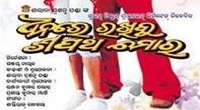
Azaad (1978) Full HD Movie Download
.jpg)
Shaitan Mantrik Full HD Movie Download
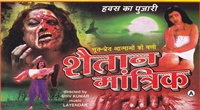
Ullasam Full HD Movie Download
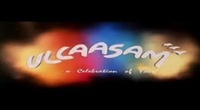
Makutam leni Maha raju Full HD Movie Download
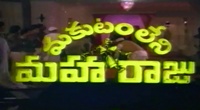
Muduru Full HD Movie Download
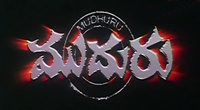
Ram Raaj Full HD Movie Download
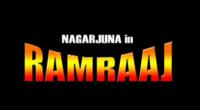
Aaj Ka Hindustani Full HD Movie Download
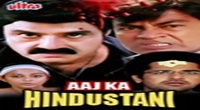
Chal Gajya Karu Majaa Full HD Movie Download
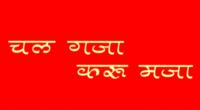
Savithriyude Aranjanam Full HD Movie Download
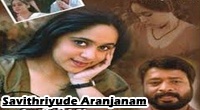
Devi Full HD Movie Download
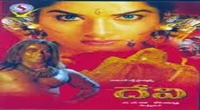
Subhavaartha Full HD Movie Download
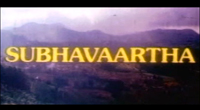
Dongalaku Saval Full HD Movie Download
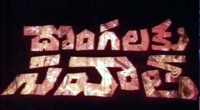
Toli Parichayam Full HD Movie Download
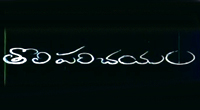
Sarangadhara Full HD Movie Download
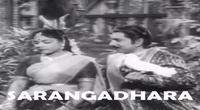
Rajamalaya Simham Full HD Movie Download
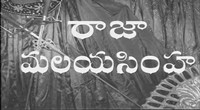
Dostana (2008) Full HD Movie Download
.jpg)
Download latest Movie from bollywood
- 1> baaghi 3
- 2> THE SKY IS PINK MOVIE FULL STORY AND REVIEW
- 3> Luka Chuppi
- 4> TO ALL THE BOYS I’VE LOVED BEFORE
- 5> Kabir Singh
- 6> Street Dancer 3D
- 7> Simmba
- 8> Gone Girl
- 9> The Girl Who Lived
- 10> Ludo
- 11> DILWALE DULHANIA LE JAYENGE
- 12> GUILTY
- 13> The Godfather
- 14> Adventures of Rusty
- 15> Sooryavanshi
- 16> Satyameva Jayate 2
- 17> Thappad
- 18> Bhool Bhulaiyaa 2
- 19> KGFChapter 2
- 20> Mardaani 2
- 21> Pinjar
- 22> Shivaji maharaj
- 23> Ek Villian 2
- 24> Hungama 2
- 25> Divergent
- 26> Mumbai Saga
- 27> The Internship
- 28> HIT (telugu)
- 29> Panga
- 30> The perfect date
- 31> 16 December
- 32> Gopala Gopala (Telugu)
- 33> Brahmastra
- 34> Gangubai Kathiawadi
- 35> Manmadhudu
- 36> Nenu local
- 37> Mahanati
- 38> Shatamanam bavathi
- 39> Lagaan
- 40> After
- 41> MOM
- 42> Shamshera
- 43> Raguvaran BTech
- 44> Khakee
- 45> The villain
- 46> OM
- 47> Mr. perfect
- 48> Bueatifull mind
- 49> Hichki
- 50> Gabbar Singh
- 51> Jogi
- 52> Before Sunrise
- 53> Before Sunset
- 54> Before Midnight
- 55> The Big Bull
- 56> Top Gun: Maverick
- 57> The Purge
- 58> The Sky is Pink
- 59> Laxmmi Bomb
- 60> Sadak 2
- 61> Sufna
- 62> Prithviraj
- 63> PK
- 64> Coolie No 1(2020)
- 65> Black Widow
- 66> Dear Zindagi
- 67> Dil Bechara
- 68> PHIR HERA PHERI
- 69> WAR
- 70> Dostana
- 71> RRR: Roudram Ranam Rudhiram
- 72> Maidan
- 73> Dabbang 3
- 74> Chhalaang
- 75> life as we know it
- 76> SherShaah
- 77> Sandeep Aur Pinky Faraar
- 78> Event Horizon
- 79> 83
- 80> Radhe: Your Most Wanted Bhai
- 81> Gunjan Saxena: The Kargil Girl
- 82> Mr India
- 83> Vivah
- 84> Anokha Bandhan
- 85> Ghost
- 86> Bhoot: Part One - The Haunted Ship
- 87> Haseen Dilruba
- 88> Laal Singh Chaddha
- 89> Qismat
- 90> Rajput
- 91> Drive
- 92> Dil Chahta Hai
- 93> Dil Ki Baazi
- 94> Dil Ka Rishta
- 95> Teesri Manzil
- 96> Dil
- 97> Love Aaj Kal
- 98> Khaali Peeli
- 99> Bunty Aur Babli 2
- 100> Atrangi Re
- 101> Gulabo Sitabo
- 102> Jodi
- 103> Suraj Pe Mangal Bhari
- 104> Deewana
- 105> Attack
- 106> Sardar Udham Singh
- 107> Toofan
- 108> THE LOVEBIRDS
- 109> Jersey
- 110> Ginny Weds Sunny
- 111> Thalaivi
- 112> Shiddat
- 113> Angels vs Zombies
- 114> Koi Mil Gya
- 115> Thank God
- 116> Bhuj: The Pride of India
- 117> Hum Aapke Hain Kaun
- 118> The Platform
- 119> Bird Box
- 120> Roohi Afzana
- 121> Torbaaz
- 122> Nikamma
- 123> World War Z
- 124> Extraction
- 125> Train to Busan
- 126> Life of Pi
- 127> SHAADI MEIN JROOR AANA
- 128> Himmat Aur Mehnat
- 129> To All The Boys: P.S. I Still Love You
- 130> Mimi
- 131> Good Newwz
- 132> Shubh Mangal Zyada Saavdhan
- 133> Raabta
- 134> Harry Potter and the Philosopher's Stone
- 135> Harry Potter and the Chamber of Secrets
- 136> Chhapaak
- 137> War of the Worlds
- 138> Harry Potter and the Prisoner of Azkaban
- 139> Harry Potter and the Goblet of Fire
- 140> MURDER MYSTERY
- 141> Shakuntala Devi
- 142> Bachchan Pandey
- 143> Jayeshbhai Jordar
- 144> Sheer Qorma
- 145> Saina
- 146> 'O' Pushpa I hate tears
- 147> Kedarnath
- 148> MS Dhoni The Untold Story
- 149> Chhichhore
- 150> Badhaai Ho
- 151> Unstoppable
- 152> Oz the Great And Powerful
- 153> The Girl on the Train
- 154> Haathi Mere Saathi 2020
- 155> The Conjuring: The Devil Made Me Do It
- 156> Gandhi Se Pehle Gandhi
- 157> The Song of Scorpions
- 158> Srimanthudu
- 159> Hello Guru Prema Kosame
- 160> Beauty and The Beast
- 161> Black Panther
- 162> Charlie and the Chocolate Factory
- 163> Bole Chudiyan
- 164> Fidaa
- 165> Duvvada Jagannadham
- 166> Bruce Lee: The Fighter
- 167> Hyper
- 168> Yaara
- 169> Red (2020)
- 170> Shivam
- 171> That Is Mahalakshmi
- 172> Nishabdham
- 173> Aashram 2020 web series
- 174> Laxmii
- 175> Mismatched
- 176> STUDENT OF THE YEAR 2
- 177> NAIL POLISH
- 178> Ramprasad Ki Tehrvi
- 179> KAAGAZ
- 180> 12 o Clock
- 181> The Power
- 182> bolo hau
- 183> Tribhanga
- 184> JAMUN
- 185> Madam Chief Minister
- 186> Maasaab
- 187> Aadhaar
- 188> Tanhaji
- 189> Bhaagi 3
- 190> Bhootnath
- 191> MALANG
- 192> Jai Mummy Di
- 193> Haathi Mere Saathi 2021
- 194> Shakeela
- 195> Unpaused
- 196> Annayya
- 197> Vamsoddharakudu
- 198> Mrugaraju
- 199> Narasimha Naidu
- 200> Sankranti
- 201> Manasu Maata Vinadhu
- 202> Anjaane
- 203> Apaharan
- 204> Bachke Rehna Re Baba
- 205> Bewafaa
- 206> Roohi
- 207> Radhe
- 208> Zindagi Khoobsoorat Hai
- 209> Yeh Mohabbat Hai
- 210> Yeh Kya Ho Raha Hai?
- 211> The Tomorrow War
- 212> DehradunDiary
- 213> Meri Shaadi Karaoo
- 214> Matruu Ki Bijlee Ka Mandola
- 215> No One Killed Jesica
- 216> Aag Ka Goola
- 217> Eight Million Dollars
- 218> Three Hundred
- 219> Cats and Dog
- 220> Decoy
- 221> Gold Rush
- 222> You Have Got Mail
- 223> Final Destination three
- 224> Tofan
- 225> Jungle
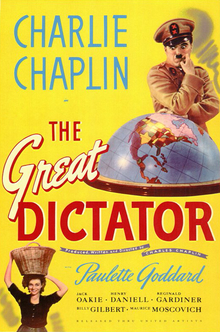 Story of movie The Great Dictator :
Story of movie The Great Dictator : 